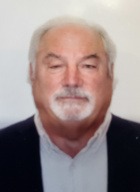Van Hool To End City Bus Production in Belgium
GLOBAL REPORT

Van Hool has announced its exit from the City Bus business and focus on Hydrogen fuel cell coaches which appears to have been a serious miscalculation. As the market transitions away from internal combustion engine buses toward battery electric buses, Van Hool has been left behind.
Van Hool recently lost a bid for 300 electric city buses to BYD which assembles their buses in Hungary at a lower cost than Van Hool could manufacture these in Belgium. It was reported that the BYD bid was approximately 20% less than the Van Hool bid. This along with other issues will result in Van Hool ending most if not all of their bus and coach operations in Belgium and transfer the bus and coach making activities to their assembly plant in Macedonia.
However, Van Hool will need a significant cash infusion in a short period of time to cover the cost of their existing debt and the coming redundancy payments in order to stave off insolvency.




